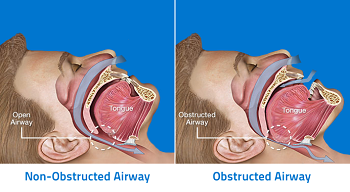Sleep Apnea and Nightmare Recall
Name of Review Item:
The Nightmares of Sleep Apnea: Nightmare Frequency Declines with Increasing Apnea Hypopnea Index
Media Type:
Paper
Author/Creator:
J. F. Pagel, M.S, M.D.; Carol Kwiatkowski, Ph.D
Publisher and Copyright Date:
Journal of Clinical Sleep Medicine, 2009
Name of Reviewer:
Michael C. Willis
Date of Review:
04/01/2019
Stars:
4

This scientific paper explores the frequency of nightmares among those to suffer from OSA, or Obstructive Sleep Apnea.
To begin, the nightmare is defined as "a disturbing mental experience that generally occurs during REM sleep and often results in awakening. The typical nightmare is a coherent dream sequence that seems real and becomes increasingly more disturbing..." Nightmares can evoke all kinds of negative emotions, but the most frightening can be those where imminent physical danger can be sensed.
Wikipedia defines Obstructive Sleep Apnea (OSA) as "the most common type of sleep apnea and is caused by complete or partial obstructions of the upper airway. It is characterized by repetitive episodes of shallow or paused breathing during sleep, despite the effort to breathe, and is usually associated with a reduction in blood oxygen saturation. These episodes of decreased breathing, called "apneas" (literally, "without breath"), typically last 20 to 40 seconds."
This paper's purpose is to clarify the correlation between the severity of OSA and the frequency of nightmare recall in a large selection of patients in a laboratory setting. Over a two year period, a selection of 393 patients were observed polysomnographically at an American Academy of Sleep Medicine (AASM) accredited sleep laboratory. The patients were surveyed about their dreams and nightmares with general sleep questions incorporated into the questionnaire so as to minimize skewed reporting by the patients. The age range was normally distributed, and 33% were female, 67% male. OSA usually affects men more than women - please see the Wikipedia page for details.
REM sleep is the stage most susceptible to abnormal breathing events, so we could say that OSA "selectively suppresses" REM sleep because the cognitive ability to remember REM sleep experiences is diminished in patients with more severe OSA. Nightmares are generally thought to occur during REM sleep, while other dreaming happens at all stages of sleep. The scientists who conducted this study concluded that because people with severe apnea are not able to remember their REM sleep dreams as well as people with less severe (or no) apnea, that this is the reason nightmare recall among those diagnosed with severe OSA was acutally found to decrease linearly with the severity of diagnosis of Obstructive Sleep Apnea. And, this happens independently of normal dream recall.
People might be tempted to say this is a good thing - after all, if you can't remember your nightmares as much, wouldn't that mean a better quality of life? Not really, folks. Quoting from the paper, "OSA is known to result in cognitive deficits that include declines in working memory and deficits in frontal cortex executive functions"
If you suffer from sleep apnea and your blood oxygen saturation drops during the night because your breathing slows or stops periodically, you could be causing damage to your body which could mean secondary cognitive and alertness issues for yourself. Lots of OSA sufferers report being sleepy a lot during the day. I know when I'm sleepy, my brain is usually not functioning at its best. This can lead to all sorts of problems if left untreated: irritability, poor work performance, even falling asleep at the wheel.
In conclusion, we can now say that as the severity of a person's OSA goes up, their ability to remember nightmares goes down due to diminished cognitive process around the incorporation of REM sleep dreams into waking life. This is because nightmares typically happen during REM sleep and REM sleep acitivity is most affected by OSA. And contrary to what one might think, this is not a good thing because it means your overall ability to remember your REM sleep dreams goes down while the disease causes other kinds of problems for your body.
Glossary Terms:
Tags:
Copyright © 2026, SubtleRealm
